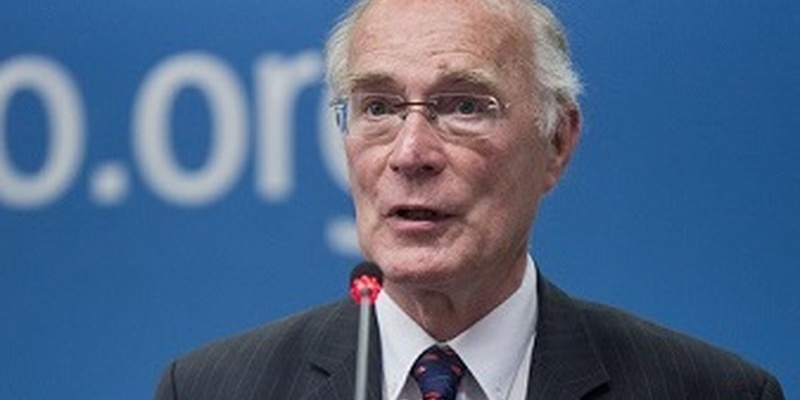The IPPC Theme for 2016: Plant Health and Food Security
Posted on Mon, 25 Apr 2016, 12:00

The Eleventh Session of the Commission of Phytosanitary Measures (CPM 11) was successfully held from 4-8 April 2016, in FAO-HQ, Rome, Italy. The CPM 11 is the first meeting for the International Plant Protection Convention (IPPC) towards the next five years (2016-2020). The Theme for the CPM 11 is Plant Health and Food Security. At the opening session of CPM 11, Dr Rudy Rabbinge, emeritus university professor at Wageningen University & Research, delivered a keynote emphasising the crucial role of Plant Health in Food Security in the past and in the future.
Crop protection is a pivotal sector in agriculture. The changes in agriculture during the last decades may be characterized by six megatrends: 1) increased productivity per ha, per man hour, per animal and counter intuitively per unit of external inputs such as fertilizers and crop protection; 2) broadened objectives, such as landscape, environment and social aspects next to productivity; 3) changed characters of agriculture more based on science, innovation and technology, less on tradition and purely empirical; 4) strengthened ties between food and health, aiming at personalized food; 5) stronger connection in the chain from soil to shelf and from seed to meat; and 6) upsurge of the bio based economy. Plant health is crucial in four of the six megatrends and that is in line with the historical development of crop protection.
The first phase of crop protection may be called the preliminary phase of recognition, description and identification of pests and diseases. In the second phase, early 20th century, a more detailed biological description of pests, their host plants and their natural enemies prevailed leading to preventive control measures. In the third phase, we see the introduction of synthetic pesticides at first in World War II. More and more calendar spraying and overemphasis on chemical control appeared, the introduction of more harmonious and integrated control started already in the fifties but got more emphasis after silent spring in the late sixties.
The promotion of integrated pest and disease control prevailed and now in the fifth phase we see the production ecological approach where plant nutrition, soil fertility, water management and pest and disease control are integrated. In many cases pests and diseases are the result of mismanagement. That approach requires much more biological knowledge and understanding at all levels. We require ecological literacy. The theoretical production ecological approach laid the basis for an agriculture that is productive, very low in its environmental effects and saves an enormous amount of hectares for biodiversity.
The increasing importance of plant health in the way agriculture is fulfilling societal objectives is striking. That crucial role requires a good mixture in the so-called golden diamond. Knowledge and innovation through knowledge institutions, private sector activities for producing in a sophisticated and responsible manner, societal organisation strengthening the societal aims and stimulating the societal dialogue and last but not least policy makers and administrations defining the rules and requirements.
The IPPC is the global convention that sets the scene and leads these developments. A challenging and very needed task that requires leadership and strong support from the constituency. It is for that reason that the dialogue promoted in the IPPC is crucial. The new leadership should be congratulated with that enlightened approach.


